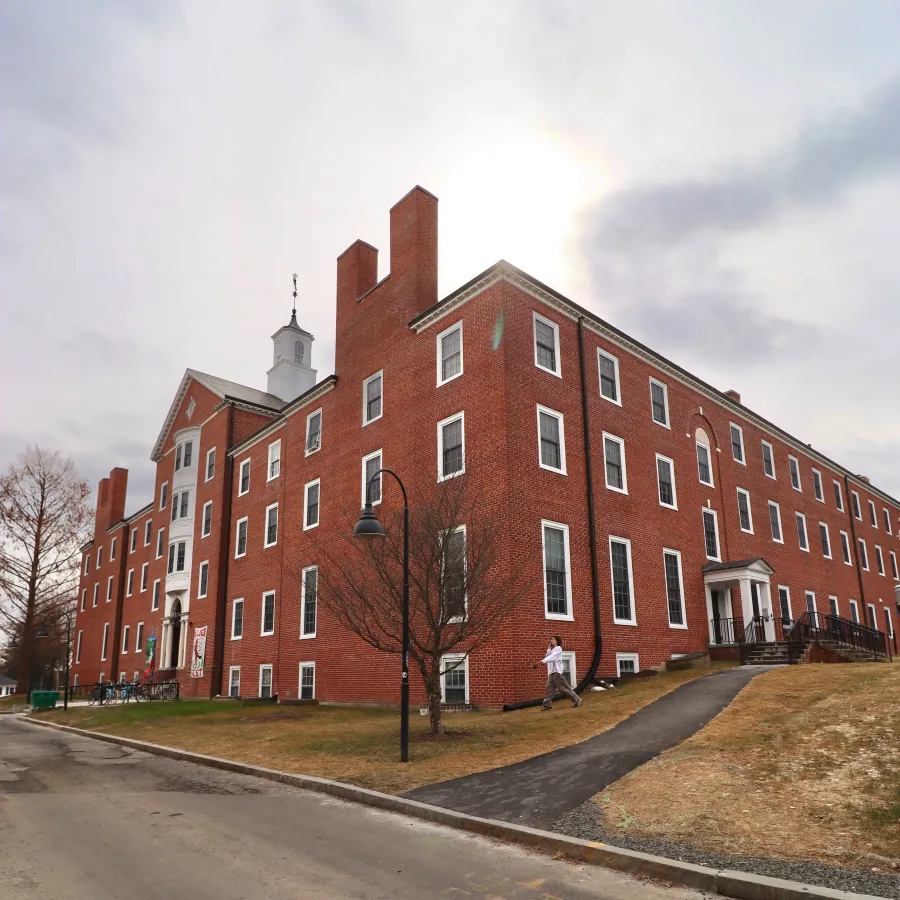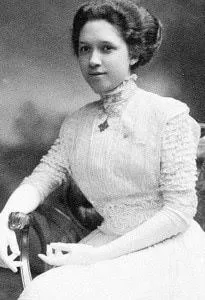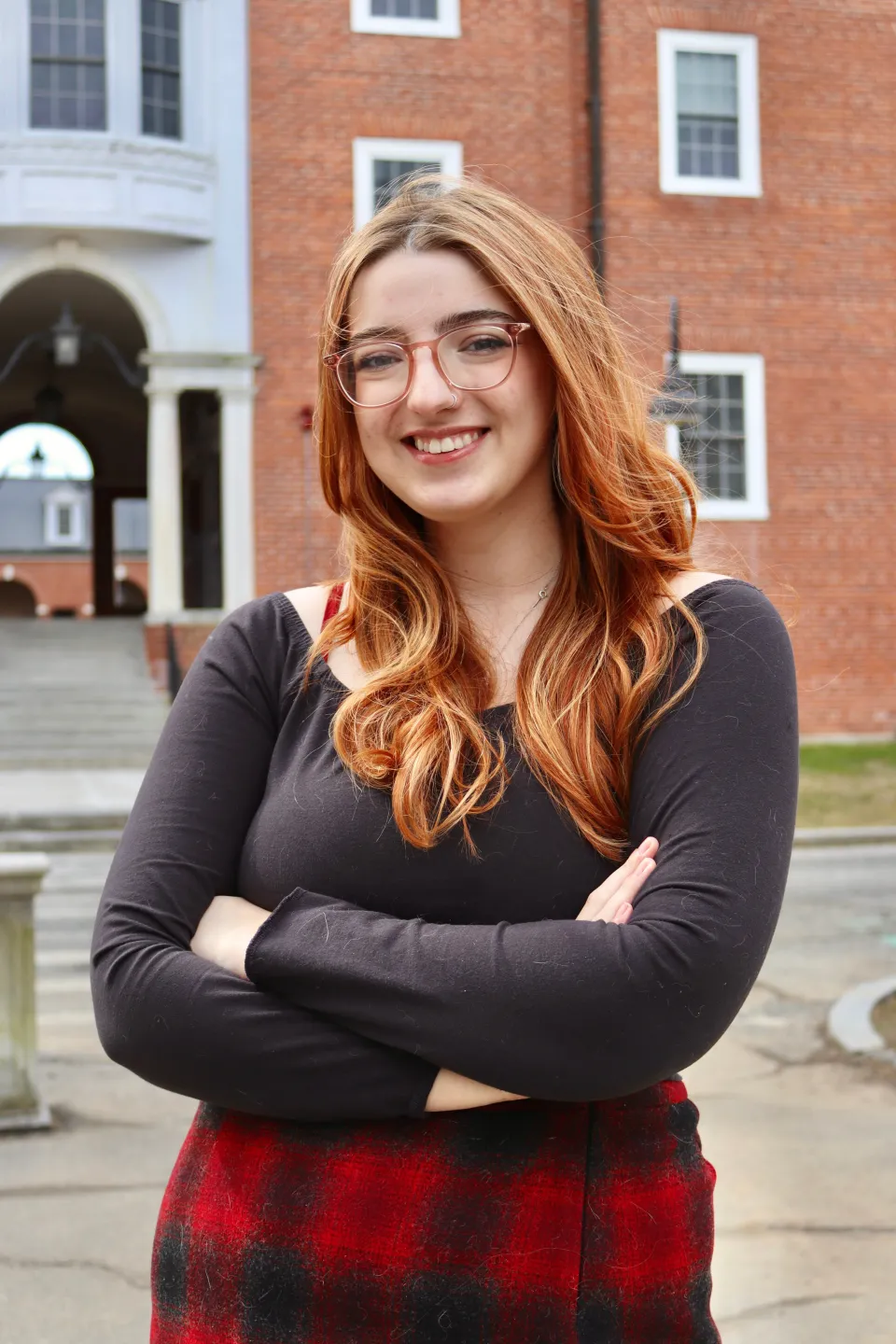Home Sweet Haynes
Campus Life
Wilder House renamed to honor pioneering educator and mathematician
Photo by Liliana Hetherman ’25
Published February 26, 2024
Nearly a century after it was constructed, one of Smith’s quad houses has a new name.
On Feb. 24, the Smith College Board of Trustees approved a name change to Wilder House after questions were raised about the Wilders’ scholarly legacy. From now on, the student residence will be known as Haynes House, after groundbreaking mathematician and educator Martha Euphemia Lofton Haynes, class of 1914.
“By enacting this change, we are upholding our commitment to creating a community where everyone feels welcome,” said Beverly Morgan-Welch ’74, chair of the External Engagement Committee, which brought the name change recommendation to the full board. “We are by no means erasing part of our history; we are examining the complexities of the college and learning from them, as is appropriate for an institution of higher learning.”
Haynes, the house’s new namesake, was the first African American woman to earn a Ph.D. in mathematics, which she received in 1943 from the Catholic University of America. A public school teacher for close to 50 years, she also served as the first woman to chair the Washington, DC, board of education. During her tenure, she was an outspoken critic of the “track system” that put African American students on educational tracks that left them unprepared for college. Her work eventually led to a federal court case that ended the track system in DC public schools.
“We are incredibly proud to honor this remarkable leader,” said President Sarah Willie-LeBreton. “Her life, her accomplishments, her belief in the power of education, and her commitment to fairness perfectly align with Smith values. I’m thrilled that this incredible Smithie will deservedly become part of our campus’ history.”
The move to rename the former Wilder House was prompted more than a year ago by a request from members of the Smith community who were concerned about aspects of the scholarship of H.H. Wilder and Inez Whipple Wilder, the two zoology professors for whom the house was named in 1930. After reviewing the request and researching available information, members of the Ad Hoc Committee to Consider Renaming Wilder House submitted a letter to President Willie-LeBreton, pointing in particular to the Wilders’ “advocacy for eugenics and their excavation of Native American human remains for the purpose of research and teaching.” Noting that some might consider it unfair to judge the professors’ work by 21st-century standards, the committee agreed with scholars past and present that the Wilders’ choices would be considered “unethical in any time.”
Floyd Cheung, vice president for equity and inclusion and chair of the ad hoc committee, says the name change is not a thoughtless reaction. Rather it is a reflection of the college’s broader effort to reflect on Smith’s past and present and address complex issues of racism and other forms of oppression. “We must remember that Smith was not originally designed for the diverse students, staff, and faculty that we have now,” he said. “The actions we take to remedy that and create a more just and inclusive future may include a range of things, from renaming to education, to policy changes and beyond.”
Professor Alexandra Keller, interim dean of the college and vice president for campus life, says the renaming process is critical because it provides an opportunity for the college community to reckon with the complexity of history. “We may, in any instance, decide we will keep a name,” Keller said. “But the conversation that brought us there will have been a fruitful one, and a chance to reflect on who we were, are, and would like to be.”
Nearly 700 alums who lived in Wilder House for at least their senior year were engaged in the decision-making process, according to Amanda Lopez, executive director of the Alumnae Association of Smith College. Also, last fall the ad hoc committee convened an open forum to discuss the issue with faculty, students, and staff.
As part of the renaming process, current residents of the house contributed a list of “virtues” that they hoped a new namesake would have. High on their list was someone affiliated with Smith who had made significant contributions to equity and inclusion and whose work had benefited others. Jillian Lehosky ’24, president of the newly named Haynes House, said she and her housemates are “very excited” to live in a space that “fully reflects the positive and inclusive community we've worked to create.” Cheung added that Haynes “meets every one of the virtues students expressed.”
Haynes House President Jillian Lehosky ’24 says current residents intend to create a history board to honor the former Wilder House’s past.
Photo by Liliana Hetherman ’25
Lehosky said she is grateful that the college took the concerns of community members seriously. The renaming, she believes, will help address a history of overlooking the contributions of marginalized communities in the naming of campus spaces. “Especially when it comes to student housing, it can be difficult to feel at home in a place that is named after someone who committed harm,” Lehosky said. “College campuses are constantly evolving, and the building names should evolve with the community too.”
Smith isn’t the only college taking steps to ensure the names of buildings and other spaces better reflect institutional values. Stanford University, the University of Minnesota, Amherst College, the University of Massachusetts Amherst, Emory University, Princeton University, and many other institutions are evaluating their naming practices to support strategic priorities. Some institutions, like Duke University, are proactively reviewing the history of named campus spaces and are committing to naming future spaces to more accurately depict the diversity of the community.
At Smith, changing a building’s name could result from a range of factors, including the discovery of troubling information associated with a namesake or simply a desire for a name that creates stronger house affinity. In most cases, the process of considering a name change begins with a request from the community. If the request has merit, the president may ask the College Archives to research any available historical information related to the person or persons for whom the space is named. Those findings are then presented to the president, who determines whether to convene an ad hoc committee made up of students, faculty, and staff to conduct more substantive research into the namesake, solicit community input, and then make a recommendation to either pursue a name change or not. That recommendation is then brought before the board of trustees for a vote.
The process, Cheung notes, provides a framework for determining whether a particular name and the history attached to it contradict the college’s mission and values. “It ensures a thoughtful, deliberative, and careful review,” he said. “Ultimately, the idea is to educate and not erase.”
To that end, a plaque will be installed on site to educate people about the house’s former name and why it was eventually changed as well as to honor the meaningful contributions the Wilders made to their field. Lehosky also noted that the house council has promised to keep all house traditions, and residents intend to create a history board in the house using old photographs and other ephemera related to the former Wilder House. “We hope that all residents, including alums, are excited that the place where they had so many good memories now has a name that reflects that,” Lehosky said.


